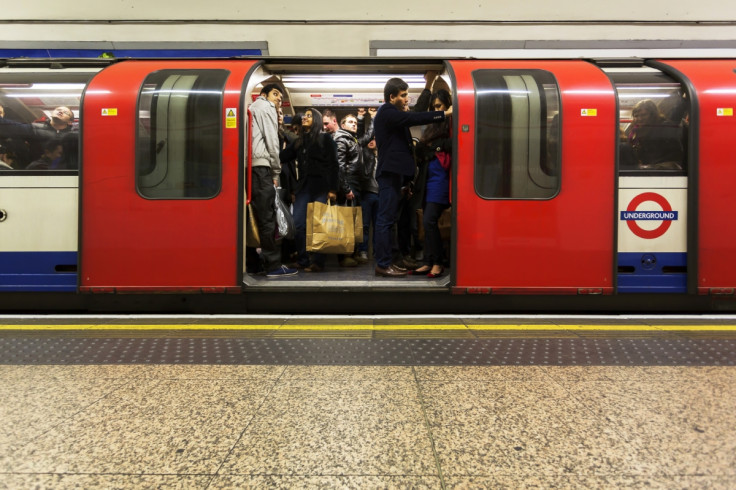Instead of freezing transport fares, why not have cheaper fares for low-income earners?

The New Year brings new fares on Transport for London's network and with it rekindles the fare debate. Labour Mayor candidate Sadiq Khan has pledged to freeze public transport fares if he is elected, whilst Mayor Boris Johnson defended the fare increases as in line with inflation.
This year London faces an overall public transport fare increase of 1%. This increase is in line with inflation, July's Retail Price Index (RPI) and was sanctioned by Boris Johnson who also highlights that he has frozen fares in 'real terms' for the past two years. This has been possible by Transport for London delivering efficiencies such as cutting back office functions, adopting new technology and changing how they deliver customer service.
On Monday (4 January), as London returns back to work after the Christmas period, Mayoral candidate Sadiq Khan recommited himself to freezing fares at 2016 levels for the four-year mayoral term until 2020. In addition to freezing fares on all Transport for London public transport services, Sadiq Khan promises to reduce bus fares in his first year and introduce a 1-hour 'Hopper' bus pass that would allow bus interchanges at no extra cost.
The mayoral hopeful says his policies will cost Transport for London only £450m over the mayoral term 2016-20, and it could in part be paid for by clamping down on fare evasion, costing TfL £61m a year. However, Mayor Boris Johnson warns that the price tag of fare freezing will be as high as £2bn over the four years.
The motivation behind freezing fares in London is that the cost of travel is affecting the poorest most. Sadiq Khan seeks to address the affordability of travel as "some have to choose between getting to work and putting food on the table by month's end".
Low earners spend almost 10% of their income on travel to work, London's travel watch dog points out in its report Living on the Edge. The report found that travel costs were an issue for all Londoners, with one in five London workers choosing the cheapest route to work over the shortest or more convenient.
At the heart of the matter is that travel costs the same regardless of what people are earning, whether it's £15,000 or £50,000 a year. Supporting the low-earners is a pressing and important issue. However, freezing fares across the board will not address the affordability of travel and access to opportunities. It is a blunt instrument to a complex problem. A more nuanced approach is needed with concessionary fares for low-income earners. Currently concessions are only available for the children, those in education, the long-term employed, those above the pension age and veterans.
In addition, greater support, such as season ticket loans, would allow low earners to also benefit from reduced travel. Some steps have already been taken to offer part-time workers reduce travel, such as capping the daily fares at one fifth of the cost of a seven-day travel card. All existing and new offers need to be more widely publicised so that Londoners and London workers can take advantage of them.
Committing to freezing fares will undoubtedly put further pressure on Transport for London's finances. These are already under strain following the announcement in the Autumn Statement that the transport authority would lose its day-to-day operations grant of £0.7bn a year, representing approximately a tenth of TfL's operations budget starting in 2018. Thereby, from 2018, London will become the only city in Europe without an operational subsidy of its transport network. Currently, annual income from fares, £4.6bn, covers 70% of cost of operating the network, £6.6bn.
To make up for this shortfall without cutting projects, TfL must find income elsewhere. The move by the government to cut its grant day-to-day running means TfL will become wholly reliant on income from fares and commercial ventures to meet its operational costs. With a reduced operational budget, TfL may be forced to cut services and staff. This given the backdrop of growing population and employment numbers.
It currently has ambitious plans to develop a property portfolio, seeking to emulate land value capture seen in other cities. Transport for London is looking to generate £3.4bn by 2021 through property development to reinvest in the network. These funds are already earmarked investment in the network.
Transport is not an end in itself. It is what enables life in the city. Providing reliable, integrated public transport services are key to the continued prosperity of cities such as London as hives of activity.
Public transport supports the attainment of social policy objectives. It tackles social exclusion, provides accessibility to centres of education, health care and improves access to jobs and opportunities. For businesses, good public transport is important as it widens their pool of employees and allows for concentrating the work force during the day.
London needs continued, long-term investment to sustain and improve the current network. The International Association for Public Transport (UITP) applauds Germany's approach of funding incremental improvements to the network through regular fare increases slightly above inflation and cost reduction efforts. To ensure low earners are not priced out of participating in the job market and accessing opportunities and services in London, a more effective measure than a blanket fare freeze would be a wider range of concessionary fares for low earners.
© Copyright IBTimes 2025. All rights reserved.





















